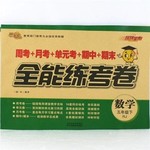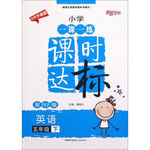
How do people pass on messages? When you write a letter or make a telephone call, your words _ 1___ a message. People communicate with words. Do you think you can communicate _2__ words? A smile __3_ your face shows you are happy and friendly. Tears in your eyes tell__4__ that you are sad. When you __5_ your hand in class, the teacher knows you want to say something __6___ ask questions. You shake your head, and people know you are saying no. You nod and people know you are saying ____ .7
Other things can also give some information. For example, a sign at the bus stop helps you to know which bus __8___. A sign on the wall of your school helps you to find the library. Signs on doors tell you __ 9___ to go in or out. __10___ you ever noticed that there are a lot of signs around you and that you receive messages __11__ them all the time? People can communicate __12___ many other ways. A (An) 13__ can use his drawings to tell about beautiful mountains, about the blue sea and many other things. Books __14___ to tell you about all wonderful things in the world and also about people and their ideas. Books, magazines, TV and radio and films all help us to communicate with other people. They all help us to know __15__ is going on in the world.
1. A.take B.carry C.bring D.gives
2. A.by B.with C.without D.use
3. A.in B.on C.at D.of
4. A.others B.the others C.other D.the other
5. A.put on B.put down C.put up D.put out
6. A.when B.or C.but D.if
7. A.no B.hello C.yes D.nothing
8. A.to get B.to take C.to have D.to bring
9. A.which B.where C.how D.what
10. A.Do B.Did C.Have D.Had
11. A.from B.of C.about D.by
12. A.with B.in C.without D.for
13. A.writer B.artist C.science D.in
14. A.write B.wrote C.are written D.is wrote
15. A.what B.which C.that D.how
1.B
2.C
3.B
4.A
5.C
6.B
7.C
8.B
9.C
10.C
11.A
12.B
13.B
14.C
15.A
【解析】
试题分析:本文简述了人们使用语言之外的交流工具进行交流,文章中提出几种除文字以外的交流沟通的方法。
1.B 动词辨析。A带走B携带C带来D给予;本句是指你说的话里带有各种信息。
2.C 上下文串联。句意是指如果没有了语言,你还能表达你的意思吗?
3.B 固定搭配。On the face指在脸上。
4.A 词义辨析。A其他人B特定范围之内的其它人C形容词,其它的D两者中的另外一个。你的眼泪告诉其他人你很难过。
5.C 动词短语辨析。A增加,上演;B写下,记下;C举起;D伸出,扑灭;根据下文可知当你举手的时候,老师就知道你有话要说,或者要问问题。
6.B 连词辨析。Or表示选择关系,当你举手的时候,老师就知道你有话要说,或者要问问题。
7.C 上下文串联。根据上文的You nod说明你点头是想说是。点头表示是这是常识。
8.B 固定词组.乘坐公交车take the bus.本句把他转换成疑问词加上不定式的形式。
9.C 上下文串联。句意:门上的标牌告诉我们如何进出。根据句意说明使用how,表示方式。
10.C 考查时态。根据ever说明使用现在完成时,表示曾经;你是否注意到在你的周围有很多的标牌,你从女性标牌上也得到了很多的信息。
11.A 介词辨析。From从…;你是否注意到在你的周围有很多的标牌,你从那些标牌上也得到了很多的信息。
12.B 固定结构。In this way用这种方法。用很多其它的方法,人们呀可以传达情感。
13.B 上下文串联。根据下文的drawings说明是指艺术家通过自己的作品来表达情感。
14.C 用法分析。Books与write之间构成被动的关系,故使用被动语态的形式。
15.A 语法分析。What引导起一个宾语从句,并在句中做主语。
考点:考查教育类短文阅读
点评:本文简述了人们使用语言之外的交流工具进行交流,答题前一定要读懂全文,弄清文章要表达的思想,注意前后段落之间的关系。答题中,一定要认真分析,注意选项与上下文的关系,与前后单词的关系。对于一时没有太大的把握的题可以放到最后再来完成,因为有时答案可以从下文内容体现出来。答完后再通读一篇文章,看看所选选项能不能是语句通顺,语意连贯。


 全能练考卷系列答案
全能练考卷系列答案 一课一练课时达标系列答案
一课一练课时达标系列答案科目:高中英语 来源:2010-2011学年江苏省高三第一次模拟考试英语试题 题型:阅读理解
Tui Na and Your Emotional Health
In Traditional Chinese Medicine the body, mind and spirit cannot be divided and so the unique whole-body treatment in Tui Na can also be a useful treatment correcting any imbalances in the body's energy before symptoms and disease can develop. It also works to restore emotional harmony as well as physical health. This is why after a Tui Na treatment many people "feel good". Many people in China use Tui Na regularly to keep healthy and to deal with some specific illnesses.
Tui Na is performed on the clothed body and the patient is either lying on a couch or sitting on a chair. Therapists using a variety of strokes or movements will control the intensity and direction of pressure in an exact way. The unique rolling movement in Tui Na is one of the most difficult strokes to learn and students have to practice sometimes for many months on a rice bag before they are allowed to practice on the human body.
Stress
Tui Na is of course very useful for treating stress.
It distributes the energy around the whole body. It is believed that Tui Na moves the strong energy in the tense muscles to the weaker areas, thus making a more balanced body. When your Qi (energy in the body) flow is balanced you feel relaxed and comfortable. Tui Na is especially useful for stiff shoulders and tense neck muscles.
Emotions
In Traditional Chinese Medicine each major organ is linked to an emotion. By balancing the energy in the organ, the relevant emotion will be calmed. When your emotions are out of control, you would usually turn to your doctor or perhaps a psychotherapist. But perhaps some people would not like to be seeing a psychotherapist or feel nervous about discussing their problems with others. With Tui Na one does not need to tell the therapist anything one does not want to. The treatment of Tui Na can deal with the problem itself — although if one does need to talk, then the safe space is there to do so. An active dialogue between the therapist and the patient will help to get a better effect.
How the major organs rule your emotions
Each major organ — the heart, the stomach, the spleen, the liver, the bladder, the kidneys, the lungs, etc. — is linked to a relevant emotion.
The heart is linked to joy, excitement and sadness. If the heart is out of balance, the patient may dream a lot at night and often forget something important in the day.
The stomach and spleen are connected with too much thinking or worrying — over anxiety. When the stomach is out of balance there is often a lack of energy. The patient often feels very tired and has no interest in doing anything at all.
The liver and gall bladder are linked to anger. In Chinese Medicine the eyes are connected with the liver, and many people who suffer from anger often suffer from eye problems. The gall bladder rules decision-making and too much energy here can lead to rashness, while if there is too little it can bring about indecision. Where there is a history of depression, the therapist would look to the liver.
The bladder and kidneys are linked to fear of all kinds, from simple anxieties and phobias to vague fears and worries.
The lungs are connected with feelings of grief and sadness. When there is a history of grief, the therapist would look to the lungs.
Tui Na is used in almost all the hospitals in China and very popular among Chinese people. It is a useful and valuable method of restoring Qi balance, when emotional and physical health is out of balance. Tui Na is one of the remaining secrets of Chinese Medicine.
1. According to the passage, which statement is TRUE about Tui Na?
A. Tui Na is a whole-body treatment and can't be divided into different parts.
B. Tui Na can be used to balance the diseases before they can develop in the body.
C. Tui Na can bring back not only physical health but also emotional health.
D. Tui Na only makes people "feel good" but do not actually cure disease.
2. How can the emotion be calmed?
A. By linking the organ to an emotion.
B. By telling the therapist anything one does not want to.
C. By discussing their problems with others.
D. By balancing the energy in the relevant organ.
3. When the stomach is out of balance, .
A. the patient will have a stomachache
B. the patient will have a lot to worry about
C. the patient will have nothing to do
D. the patient will not feel like doing anything
查看答案和解析>>
科目:高中英语 来源: 题型:阅读理解
查看答案和解析>>
科目:高中英语 来源:同步题 题型:阅读理解
查看答案和解析>>
科目:高中英语 来源:同步题 题型:阅读理解
查看答案和解析>>
科目:高中英语 来源:2011届江苏省盐城中学高三第一次模拟考试英语试卷 题型:阅读理解
Tui Na and Your Emotional Health
In Traditional Chinese Medicine the body, mind and spirit cannot be divided and so the unique whole-body treatment in Tui Na can also be a useful treatment correcting any imbalances in the body's energy before symptoms and disease can develop. It also works to restore emotional harmony as well as physical health. This is why after a Tui Na treatment many people "feel good". Many people in China use Tui Na regularly to keep healthy and to deal with some specific illnesses.
Tui Na is performed on the clothed body and the patient is either lying on a couch or sitting on a chair. Therapists using a variety of strokes or movements will control the intensity and direction of pressure in an exact way. The unique rolling movement in Tui Na is one of the most difficult strokes to learn and students have to practice sometimes for many months on a rice bag before they are allowed to practice on the human body.
Stress
Tui Na is of course very useful for treating stress.
It distributes the energy around the whole body. It is believed that Tui Na moves the strong energy in the tense muscles to the weaker areas, thus making a more balanced body. When your Qi (energy in the body) flow is balanced you feel relaxed and comfortable. Tui Na is especially useful for stiff shoulders and tense neck muscles.
Emotions
In Traditional Chinese Medicine each major organ is linked to an emotion. By balancing the energy in the organ, the relevant emotion will be calmed. When your emotions are out of control, you would usually turn to your doctor or perhaps a psychotherapist. But perhaps some people would not like to be seeing a psychotherapist or feel nervous about discussing their problems with others. With Tui Na one does not need to tell the therapist anything one does not want to. The treatment of Tui Na can deal with the problem itself — although if one does need to talk, then the safe space is there to do so. An active dialogue between the therapist and the patient will help to get a better effect.
How the major organs rule your emotions
Each major organ — the heart, the stomach, the spleen, the liver, the bladder, the kidneys, the lungs, etc. — is linked to a relevant emotion.
The heart is linked to joy, excitement and sadness. If the heart is out of balance, the patient may dream a lot at night and often forget something important in the day.
The stomach and spleen are connected with too much thinking or worrying — over anxiety. When the stomach is out of balance there is often a lack of energy. The patient often feels very tired and has no interest in doing anything at all.
The liver and gall bladder are linked to anger. In Chinese Medicine the eyes are connected with the liver, and many people who suffer from anger often suffer from eye problems. The gall bladder rules decision-making and too much energy here can lead to rashness, while if there is too little it can bring about indecision. Where there is a history of depression, the therapist would look to the liver.
The bladder and kidneys are linked to fear of all kinds, from simple anxieties and phobias to vague fears and worries.
The lungs are connected with feelings of grief and sadness. When there is a history of grief, the therapist would look to the lungs.
Tui Na is used in almost all the hospitals in China and very popular among Chinese people. It is a useful and valuable method of restoring Qi balance, when emotional and physical health is out of balance. Tui Na is one of the remaining secrets of Chinese Medicine.
【小题1】According to the passage, which statement is TRUE about Tui Na?
| A.Tui Na is a whole-body treatment and can't be divided into different parts. |
| B.Tui Na can be used to balance the diseases before they can develop in the body. |
| C.Tui Na can bring back not only physical health but also emotional health. |
| D.Tui Na only makes people "feel good" but do not actually cure disease. |
| A.By linking the organ to an emotion. |
| B.By telling the therapist anything one does not want to. |
| C.By discussing their problems with others. |
| D.By balancing the energy in the relevant organ. |
| A.the patient will have a stomachache |
| B.the patient will have a lot to worry about |
| C.the patient will have nothing to do |
| D.the patient will not feel like doing anything |
查看答案和解析>>
湖北省互联网违法和不良信息举报平台 | 网上有害信息举报专区 | 电信诈骗举报专区 | 涉历史虚无主义有害信息举报专区 | 涉企侵权举报专区
违法和不良信息举报电话:027-86699610 举报邮箱:58377363@163.com